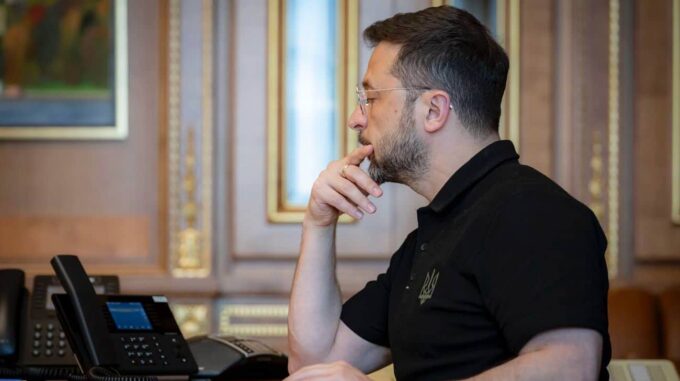Zelensky and Merz Discuss Cooperation Prospects and Future Goals in the Context of Supporting Ukraine

On May 8, Ukrainian President Volodymyr Zelensky made his first phone call with the newly appointed German Chancellor, Friedrich Merz. This marked an important step in establishing bilateral relations between the two countries following changes in Germany's leadership. According to sources from "European Truth," during the conversation, Zelensky sincerely congratulated Merz on his appointment as Chancellor and emphasized the importance of Germany’s continued active support for the Ukrainian people. The Ukrainian leader expressed confidence that the Bundestag will continue to play a key role in helping Ukraine, particularly in the context of countering Russian aggression and rebuilding the country. Zelensky stated that the parties have already agreed to work together on implementing numerous important initiatives and examined prospects for future cooperation in political, diplomatic, and humanitarian spheres. During the negotiations, the Ukrainian leader paid special attention to strengthening diplomatic efforts, highlighting the need to make diplomacy more meaningful and effective. "We will work together to achieve a just peace for Ukraine. We plan to agree on the schedule of contacts and meetings in the very near future," Zelensky noted. Friedrich Merz, who recently served as Acting Minister of Defense and is a member of Germany’s conservative forces, has already made several public statements regarding Ukraine. He dismisses the idea of sending German troops to Ukrainian territory and instead plans to visit the Ukrainian capital — Kyiv. This indicates his desire to support Ukrainian efforts and maintain a steady dialogue with Kyiv, while also emphasizing caution regarding military assistance from Germany. Comprehensive analysis of the new Chancellor’s and his team’s efforts in the context of German-Ukrainian relations appears in political and analytical circles. Moreover, new кадрові рішення in the German government are soon to be expected, which, according to experts, could shift cooperation directions with Ukraine and influence military and financial support topics. More details about the new official, his team, and their policies regarding Ukraine can be found in special reports, including articles on the formation of Germany’s future cabinet and possible implications for the Ukrainian front. Such diplomatic steps in initiating cooperation are an important move toward maintaining European unity and supporting Ukraine during this difficult time of war.

